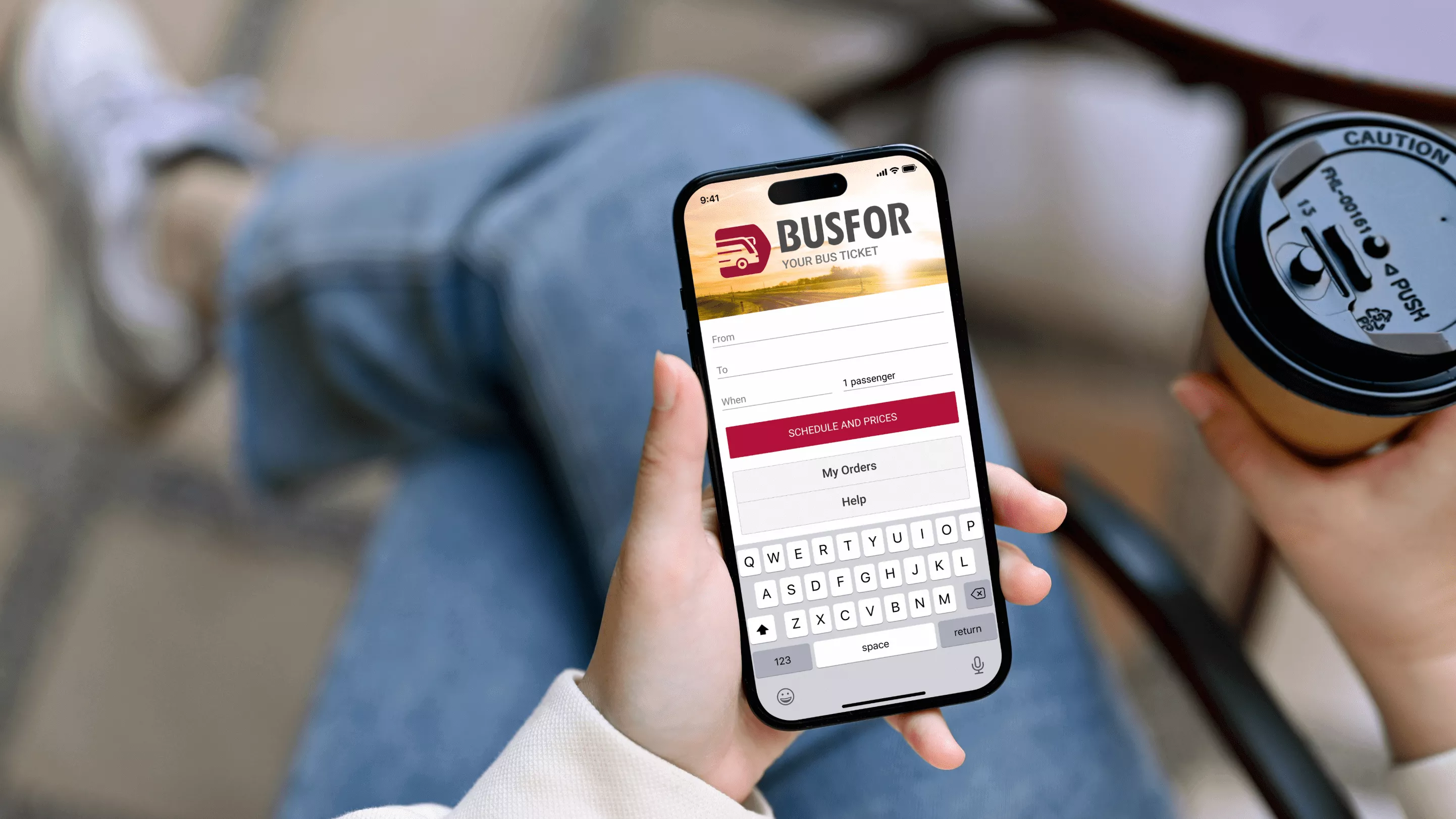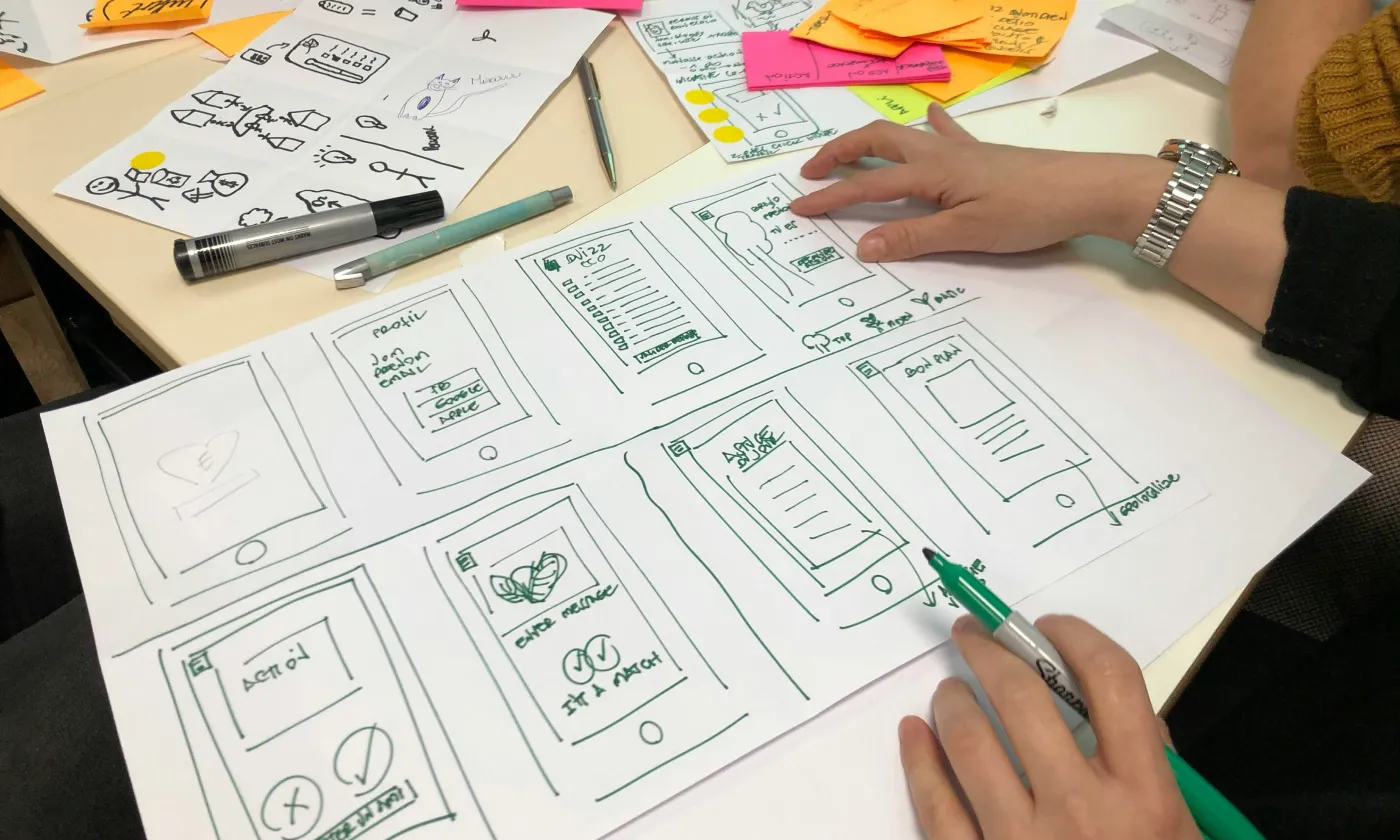
Year after year, an increasing number of individuals seek convenient and trustworthy methods for planning trips and booking flights, hotels, and cars. Hopper app has revolutionized travel planning, booking, and price prediction algorithms, ultimately saving countless users time and money on their global travels. This blog post delves into the workings of the Hopper travel app and provides insights on creating a personalized travel planning and booking solution, leveraging the advantages of Hopper to meet the diverse needs and expectations of travelers.
Hopper App in Brief
Since its inception in 2015, the Hopper app has pivoted towards becoming a central hub for mobile bookings of travel products and fintech services related to travel. By March 2023, global visits to hopper.com had exceeded four million. Notably, flight, hotel, short-term accommodation, and rental car bookings were exclusively accessible through the mobile app during that period. The mobile application of Hopper witnessed significant traction, ranking among the most downloaded online travel agency (OTA) apps globally in 2022. Analyzing the downloads of prominent OTA apps in the United States for the same year emphasizes the pivotal role played by U.S. consumers, contributing to almost two-thirds of Hopper's global app downloads.
Functioning as a travel marketplace, the Hopper app offers a comprehensive suite of services to travelers, encompassing ticket and hotel room reservations, along with dedicated budget planning features. Leveraging artificial intelligence, historical data, and Big Data analytics, Hopper empowers users to discover and compare the most lucrative deals across various accommodation options. Users benefit from travel tips and recommendations, including insights on the best places to visit, all sourced from fellow travelers, facilitating efficient trip planning and preparation.
Want a web app that does more?
Let's build a solution that's smart, sleek, and powerful.
Alina
Client Manager

The standout feature of the Hopper booking hotel app lies in its remarkable ability to predict future airfare prices with a high degree of accuracy. Users can specify their destination and travel dates, and Hopper will forecast the optimal time to purchase tickets for the best prices. The project team asserts that, on average, their app saves users approximately $50 on domestic flights and around $120 on international flights.
The Distinctive Features of Hopper Travel App's Popularity
Hopper app has gained widespread acclaim and become the preferred choice for numerous travelers, thanks to several compelling factors that set it apart in the travel app landscape:
Cost Savings
Hopper excels in saving money for users. The app's algorithms are purported to deliver savings of up to 40% on airline tickets and up to 60% on hotel bookings. Users can also capitalize on discounts for car rentals and restaurant reservations.
Price Locking
Hopper enables users to freeze the current prices of plane tickets, hotel rooms, or cars and book them later. This feature proves invaluable when travelers wish to assess the market or defer their purchase.
Precision Predictions
With a boastful 95% accuracy rate, Hopper excels in predicting airfare and hotel prices up to a year in advance. It's akin to having a clairvoyant companion who peers into the future of air travel, albeit without the crystal ball and velvet curtains.
Time Efficiency
The Hopper app simplifies the travel planning process. Users can input their travel date, destination, and relevant filters, and the app will present the best prices. Displaying flights from all airlines, cars from various rental locations, and a range of hotels, the Hopper app for travel streamlines the price comparison process, eliminating the need to check each provider individually.
Building a Hopper App Clone in Six Steps
Hopper is a versatile software for travel management that simplifies the booking process for flights and hotels with just a few taps. If you're considering developing a booking app for your business, it's advisable to explore platforms that offer users the convenience of booking flights, hotels, and car rentals all in one place. Such integrated platforms provide users with a one-stop solution for all their travel plans, allowing them to access a comprehensive range of services. Additionally, users can make reservations for mini-vans or smaller vehicles when traveling with friends or family through these platforms.
So, you've decided to venture into building a travel app business akin to Hopper. The crucial next step is to identify your target market. Who are the individuals that would find value in using such an app?
Seasoned entrepreneurs emphasize the importance of understanding your customer base before initiating any business endeavor. Therefore, start the process of determining your target audience. Pay attention to aspects that appeal to you and those that don't. Ensure that the features incorporated into your final software for travel management effectively address these insights. This proactive approach will significantly contribute to the success and resonance of your travel app with the intended users.
Market Research
Identify your app's target market by understanding the needs and preferences of potential users. Analyze what attracts users to similar apps and what gaps exist in current offerings. Consider your target audience, their pain points, and how your app can address these effectively.
Monetization Model
Choose a suitable monetization model for your software for travel management. Decide whether it will be a paid app, rely on advertising, incorporate in-app purchases, or be free. Ensure that your chosen model aligns with user expectations and adheres to platform guidelines, considering factors like data security and transaction processing.
Hire a Hopper App Developer
Engage skilled developers to bring your app idea to life. While you can attempt to develop the app independently, outsourcing to experienced professionals increases the likelihood of success. Outsourcing allows access to expert developers with a proven track record, ensuring the creation of a high-quality and well-received product.
Minimum Viable Product (MVP)
Develop a Minimum Viable Product (MVP) that includes essential features to test your hotel booking app's concept. The MVP should showcase the core functionality of your travel app, providing a glimpse of its potential. This approach allows you to gather user feedback, make necessary adjustments, and validate your app idea before investing further resources.
Marketing and Promotion
Implement a comprehensive marketing strategy to attract users to your travel app. Combine advertising and marketing efforts to create initial buzz and drive short-term success. Simultaneously, develop a long-term plan for sustained growth, organic downloads, and brand loyalty. Set clear goals and objectives to guide your marketing initiatives and track success.
Ongoing Maintenance and Support
Recognize the importance of ongoing maintenance and support for your app. Plan for regular updates, potential upgrades, and any necessary changes over time. Consider hiring a dedicated developer to ensure consistent updates and support, providing a more reliable solution than relying on external freelancers for sporadic large-scale projects. Include these ongoing costs in your pricing model to maintain a sustainable and successful travel app.
How to Create a Hopper App Clone: A Step-by-Step Guide
Developing software for travel management involves careful planning, understanding your target audience, and implementing key features. Here's a step-by-step guide to help you create an innovative travel planning and reservation app.
1. Define Your Niche and Target Audience:
- Identify your unique selling proposition (USP) that sets your app apart.
- Understand your target audience's preferences, travel habits, and budget constraints.
- Categorize users based on their needs to tailor your app accordingly.
2. Build an Experienced Development Team:
- Find an experienced development team with technical skills for secure and functional solutions.
- Consider partnering with a reliable development company for efficient project management.
3. Determine Your Business Model and Monetization:
- Choose a revenue model such as commissions, premium features, in-app advertising, or sponsorships.
- Explore options like providing coupons, a premium version, or in-app purchases.
4. Incorporate Essential Features:
- Registration: Simplify the signup process for users.
- User Profile: Allow users to personalize their preferences and store information.
- Search Engine and Filters: Provide efficient search and customization options.
- Travel Planner: Include tools for creating and managing travel plans.
- Ticket Price Forecasting: Implement machine learning algorithms to predict price changes.
- Hotel and Flight Reservations: Enable users to compare and book services seamlessly.
- Freeze Prices: Offer flexibility by allowing users to freeze prices for future bookings.
- Accommodation Management: Simplify reservation changes and cancellations.
- Maps for Navigation: Include reliable maps for easy travel navigation.
- Payment Gateway: Ensure secure payment options for booking hotel app services.
5. Design an Effective Application Architecture:
- Choose a flexible and scalable client-server architecture with microservices.
- Divide the application into independent components for easier development and updates.
6. Design a User-Friendly Interface:
- Create a simple, intuitive, and visually appealing design.
- Focus on precise controls, memorable color schemes, and readable fonts.
- Prioritize personalization, device compatibility, logical workflows, and user feedback.
7. Backend, Frontend, and API Development:
- Implement the backend for data processing, business logic, and database interaction.
- Develop the front end for a seamless user interface and interaction.
- Establish an API to facilitate communication between the backend and frontend.
8. Testing and Quality Assurance:
- Conduct thorough testing to identify and resolve bugs and issues.
- Ensure the app meets security and performance standards.
- Implement quality assurance measures for a reliable and user-friendly experience.
9. Launch and Marketing:
- Plan a strategic launch to generate buzz and attract users.
- Utilize marketing strategies for both short-term and long-term growth.
- Set clear goals and objectives to guide your marketing efforts.
10. Ongoing Maintenance and Updates:
- Provide ongoing maintenance and support for the app.
Address user feedback and implement updates to enhance features.
- Stay informed about industry trends for continuous improvement.
- By following these steps, you can create a Hopper app clone that meets the needs of modern travelers and provides an exceptional user experience.
Estimating the Cost of Developing a Hotel Online Booking App Like Hopper
When determining the cost of developing a hotel online booking app like Hopper, several factors come into play. Key considerations encompass the intricacies of features and functionality, the preferred development model (whether it aligns with the Waterfall or Agile methodology), the composition of your development team (in-house, freelancers, or outsourcing), the targeted platforms (iOS, Android, or both), the chosen technology stack (such as Objective C, Swift, Java, or Kotlin), design specifications, user interface requirements, quality assurance and testing measures, project timeline, post-launch support, and the extent of market research conducted.
Hopper is an extensive software for travel management offering many features, enabling users to seamlessly book air tickets, accommodations, cars, and hotels. Each of these functions could individually form substantial projects similar to prominent platforms like Booking, and Airbnb. Consequently, developing a comprehensive project encompassing all these functions, complete with a unique design and a distinct code base, would typically incur a cost ranging from $300,000 to $400,000, with a development timeframe spanning 6 to 9 months. For a more streamlined approach involving the integration of select features, the cost could be reduced to approximately $90,000 to $150,000. The most straightforward and expeditious option involves leveraging pre-built solutions, allowing the realization of your concept at a minimal cost, typically starting from $40,000 and requiring around 2 to 3 months of development.
The cost of developing a hotel booking app like Hopper can vary widely based on these factors. To get a precise estimate, consult with development experts, provide detailed project requirements, and consider obtaining quotes from different development teams. Keep in mind that investing in a high-quality app often leads to better user satisfaction and long-term success.
Our Experience
MeinFernbus
The initial objective of this software for travel management was to introduce an additional sales channel alongside the web interface. This goal was effectively achieved without unnecessary additions, ensuring alignment with user requirements to extract maximum value from the service. Our team took charge of the UI aspect, collaboratively working with the MeinFernbus team to initiate the development of the initial version, subsequently allowing them to continue independently and launch the app to the market. The resulting app is a straightforward yet highly interactive platform featuring three sections (Station, Booking, and Information).
With a user-friendly design, there is no registration requirement, making the app easy to navigate and use. It's worth noting that the description pertains to the Android app's first version developed by our team, while subsequent app versions created by the client's team are available in the marketplace.
Busfor
Busfor is an online platform specializing in ticket sales, streamlining the process of purchasing tickets for domestic and international travel.
With a presence in regions such as Ukraine, Europe, and South-East Asia, Busfor provides convenient travel solutions. During its early phases, our team played a crucial role in supporting the company's entry into the mobile market by promptly developing both iOS and Android applications.
Bottom Line
For successful hotel online booking app development that prioritizes user needs and delivers both functionality and aesthetic appeal, it is crucial to emphasize the effectiveness of the forecasting algorithm. Ensuring the algorithm's ability to generate comparable results beyond set preferences is essential.
Engaging a mobile app development company, equipped with dedicated developers and designers, leveraging cutting-edge IT resources and modern tools, is key to achieving high-quality products. If you find yourself uncertain about the initial steps in creating software for travel management, consider contacting Stfalcon for expert guidance and assistance.

 Read the full case study
Read the full case study
 Read the full case study
Read the full case study



